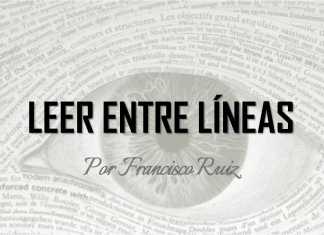Smell stands in the middle of the five senses in terms of the degree of immediacy to humans. We can see things far away as a result of the transmission of electromagnetic waves. Sound is also transmitted through waves and can also be heard far away, although not as far as the things we see. We can see the sun, but we can’t hear it, at least with our naked ears. Taste is transmitted by different chemical molecules that touch taste receptors in our mouths. Taste stimuli have to be right next to a part of human anatomy to be perceived. And yet we don’t taste the whole food itself, but rather chemical molecules that are released from the physical solid or liquid. Actually, most of what we call taste actually comes from the sense of smell. But that is beyond the scope of this paper. With touch, we experience directly the immediate contact with the object or mass being experienced. No mediating waves or molecules standing between the human and the phenomenon being experienced.
Like taste, smell is transmitted through chemical molecules. But unlike taste, smell is carried through the air. So it can travel over a greater distance than taste. But not so far as sight and sound. A smell can come from a gas (hydrogen sulfide), a liquid (a perfume) or a solid (a soap or a food or a forest). Because it is airborne, it is mediated like light or sound, but it is more like taste and touch in terms of the immediate contact by humans with some airborne substance. We can say that, generally speaking, sight and sound are based more on defined discrete stimuli, taste and touch are based more on flowing blendable continual stimuli and smell is based on a combination of the two.
Nevertheless, there are people who want to use modern technology as a vehicle for being able to precisely measure and control the sensations emanating from smell stimuli and to turn smell into almost exclusively a defined discrete stimulus. The inventors of the Moodo smart home aroma diffuser hope to replace scented candles and scented sticks by allowing people to mix fragrances together from different capsules to create “endless” new scents and thus to be able to precisely calibrate how a room is going to smell. Furthermore, all of this can be done from an iPhone or some other smart device. Not only can one calibrate the proportions of different foundation aromas to create a smell that is just right for one’s mood, but one can set it up in such a way that the aromas is released only during the period that we want to smell it. Supposed perfect control over something that is as nebulous and amorphous as a fragrance. One can turn it off when one is ready to go to bed and doesn’t want the olfactory stimulation to keep him awake. Moodo says a person can “DJ” his aroma from a smart device. I’ve got an idea. Why not create smellathons, where people can go and experience a series of different aromas created by a real smell DJ?
Now we are going to have the opportunity to do what, at one point, would have seemed impossible: turn a more immediate sensation like smell into a highly mediated experience. We will focus on artificially controlled fragrances instead of aromas that we find coming from more natural sources in the external world. Now, you will say that perfumes and colognes are contrived fragrances. This is true. However, they are made by professional fragrance makers who mix together lots of different chemicals to create truly unique perfumes and colognes. These professional fragrance makers are olfactory artists, unlike people who create their “unique aromas” from combining 3 fragrance capsules in different proportions. The latter are like fragrance engineers controlling the situation basically from their I Phones.
No matter how many different aromas can be created by mixing together powders from their three basic capsules, there is not going to be the variety or complexity of smells available from the oils, perfumes, colognes and air fresheners on the market. But using Moodo with its apparent variety is going to displace, in many cases, these other sources of fragrances and is going to constrict the world of aromas for the people who use it.
Some will say that using Moodo is better than no fragrance at all. Perhaps. But must we always find technological solutions for all our experiential needs? The moment we do that, we mechanize and routinize the solution and suck some of the flavor out of the experience. Particularly is this true with a world of experience that is so immediate as the world of smell. Are we then going to develop a taste Moodo or a touch Moodo? Will there be any aspects of our world of experience not tainted by technological manipulation?
Another perspective from which to look at this is that of making imprints. It is impossible to preserve an imprint using a fragrance within a life experience except as a memory, but a fragrance certainly is an effective way to make an imprint on oneself and on the external world. Picking an independent fragrance for a room represents making a far more meaningful imprint than trying to mix together “unique” fragrances from three basic scent capsules. Maybe one can create many fragrances from all the different combinations of the scent capsules, but there are so many uniquely different scents outside of these three scent capsule that aren’t being covered by the mixtures from the three scent capsules. Will people become dependent on Moodo or similar inventions for their smell environment? Will it displace an appreciation for fragrances like the smells of nature or like perfumes and colognes? In the desire of so many people today to control as many aspects of their living environment through technology as possible, are they, in some cases, creating drab trivialized choices like from capsule-based smells, making trivialized mechanistic imprints, in order to feel that they are truly in charge of their living environments. Something is being lost in the process of humans trying to gain control of so much. It’s called life.
© 2019 Laurence Mesirow





